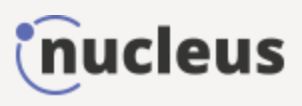Browse our elite collection of AI agents and build your digital workforce in minutes, not months.

Humen’s AI workers automate outbound sales tasks, reducing human input and costs.

AI project management tool that automates notes, action tracking, and meeting summaries to boost productivity.

AI-driven agents designed for dental practices to automate patient education, treatment plan explanations, and follow-up care.

Recrubo.ai is an AI recruitment platform that optimizes blue-collar hiring with personalized engagement and ATS integration.

Multi-agent, multi-channel AI platform that provides proactive, personalized support across industries.

PraxisAI enables manufacturers to use deep learning for real-time machine data analysis, reducing downtime by up to 25%.

Facilitate human-AI collaboration by allowing AI agents to pay humans for completing tasks beyond AI capabilities.

AI-powered customer support platform that scales operations for seasonal traffic spikes and multi-tier support.

Nucleus AI lets businesses create AI employees to manage calls, messages, and notifications, improving efficiency and service.

Superbo GenAI Fabric is a modular architecture for building secure and cost-efficient conversational apps and virtual employees.
An open-source LLM is a large language model (like GPT, BERT, or T5) whose architecture and weights are made publicly available. These models are developed by communities or organizations and can be freely accessed, modified, and deployed by anyone.
Open-source LLMs are freely accessible, allowing users to inspect, modify, and customize the models. In contrast, proprietary models are closed-source, meaning they are owned and controlled by specific companies (e.g., GPT-3 from OpenAI), and access is typically limited or monetized.
Open-source LLMs offer cost savings, customizability, transparency, and freedom from vendor lock-in, allowing businesses to tailor the models to their specific needs without expensive licensing fees.
You can find directories of open-source LLMs on platforms like Hugging Face Hub, GitHub repositories, and Papers with Code.
You can find directories of open-source LLMs on platforms like Hugging Face Hub, GitHub repositories, and Papers with Code.
AI-driven platforms help businesses automate processes, analyze data, optimize decision-making, and enhance customer experiences by using AI technologies like machine learning and natural language processing to improve productivity and performance.
AI-driven platforms use machine learning, automation workflows, and data insights to handle routine tasks, improve decision-making speed, reduce errors, and free up human resources for higher-level work, enhancing operational efficiency.
Examples include Salesforce Einstein for CRM automation, UiPath for robotic process automation, Tableau for data visualization, and Zendesk AI for customer service automation.
The best AI platforms include Google Cloud AI, Microsoft Azure AI, Amazon Web Services (AWS) AI, IBM Watson, and Salesforce Einstein for a range of AI-driven services including machine learning, data analytics, and automation.
A digital worker AI is an automated software agent that performs repetitive tasks, mimicking human actions in a digital environment, typically used in business processes like data entry, customer support, and task scheduling.
Digital worker AI can automate tasks like responding to emails, scheduling meetings, data extraction, invoice processing, and customer service inquiries, improving efficiency and reducing manual effort.